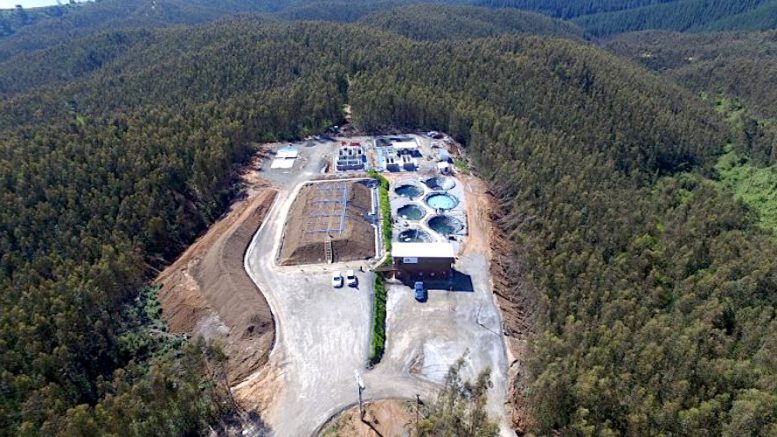Aclara Resources (TSX:ARA) has submitted a new environmental impact assessment (EIA) to the Chilean government for its Penco Module rare earths project, as it targets a feasibility study for 2024.
The new EIA, submitted to the Environmental Service Assessment (SEA) makes several improvements on the previous filing that Aclara withdrew in March of last year after it was unable to satisfy requirements related to the environment and local flora and fauna, the company said in a release on Friday.
“Today we feel proud, not only because we have addressed these technical aspects through a rigorous scientific investigation, but because the new EIA now includes world class environmental attributes that enhance the value proposition of the new project,” said Aclara CEO Ramón Barúa. “In doing so, we have strengthened our relationship with the host community by demonstrating that we want to co-develop the project, that we have listened to their concerns and that we are now presenting a new project that is stronger and better in all aspects.”
The Penco Module project hosts heavy rare earth elements in ionic clay deposits across a 6-sq.-km property located near the coastal city of Concepcion and about 500 km south of Santiago.
Aclara said that starting last April it launched several studies aimed at assessing how the project can avoid adversely affecting the local environment, particularly the Queule and Pitao native tree species.
The new EIA includes plans to use only recycled water for all of Penco’s water needs; the revegetation of more than 2 sq. km of land with native species that will be donated to a Chilean foundation for the benefit of local communities, construction of a reproduction centre for the Pudu deer and a recreational park for the Penco community.
Aclara added that the project’s extraction process won’t involve the use of explosives, crushing or milling and a fertilizer will be used as its main reagent, which will also be recycled with 99% efficiency. Penco won’t require a tailings storage facility as no solid or liquid residues will be produced. The new assessment also includes details of a prefeasibility engineering study of Penco.
Construction and production at Penco would create more than 2,000 direct and indirect jobs, Aclara says, with priority on hiring workers from the local region.
The company expects the new EIA will be subject to an evaluation period of about 18 months.
In March, Aclara said it had awarded a contract for the feasibility study to Chilean engineering firm Pares & Alvarez. The study will focus on process plant engineering, mine infrastructure and mine services. It is expected to be published in the first half of 2024.
Aclara expects to begin construction of the plant in the second half of 2024.
Last October, the company posted an updated resource estimate for Penco, following its preliminary economic assessment (PEA) in 2021.
The PEA estimates initial and sustaining costs at Penco of US$148 million and operating costs of US$23.6 million over a 12-year mine life. Using a price assumption of US$96 per kg of (REO), Penco’s after-tax net present value would be US$78 million based on a 5% discount rate, and its internal rate of return 23%, with a post-tax payback period of 4.7 years.
In terms of production, the PEA gives a base case of about 774 tonnes of REO per year, with peak production of 1,156 tonnes of REO in the third year, for 8,901 tonnes over the mine life.
Average EBITDA over the mine life is estimated at US$539 million.
Penco Module has measured and indicated resources of 27.5 million tonnes grading 380 parts per million (ppm) neodymium and praseodymium and 66 ppm dysprosium and terbium, with a combined rare earth oxide (REO) grade of 2,292 ppm for contained REO of about 63,000 tonnes. Inferred resources total 1.7 million tonnes grading 298 ppm neodymium and praseodymium and 71 ppm dysprosium and terbium, with a combined REO grade of 1,999 for contained REO of 34,000 tonnes.
Aclara shares were up by 6.5% on Friday afternoon in Toronto at 44¢ apiece, for a market cap of $72.6 million. The stock has traded in a 52-week window of 25¢ and 63¢.


Be the first to comment on "Aclara Resources says revamped EIA for Chile rare earths project reduces impacts"